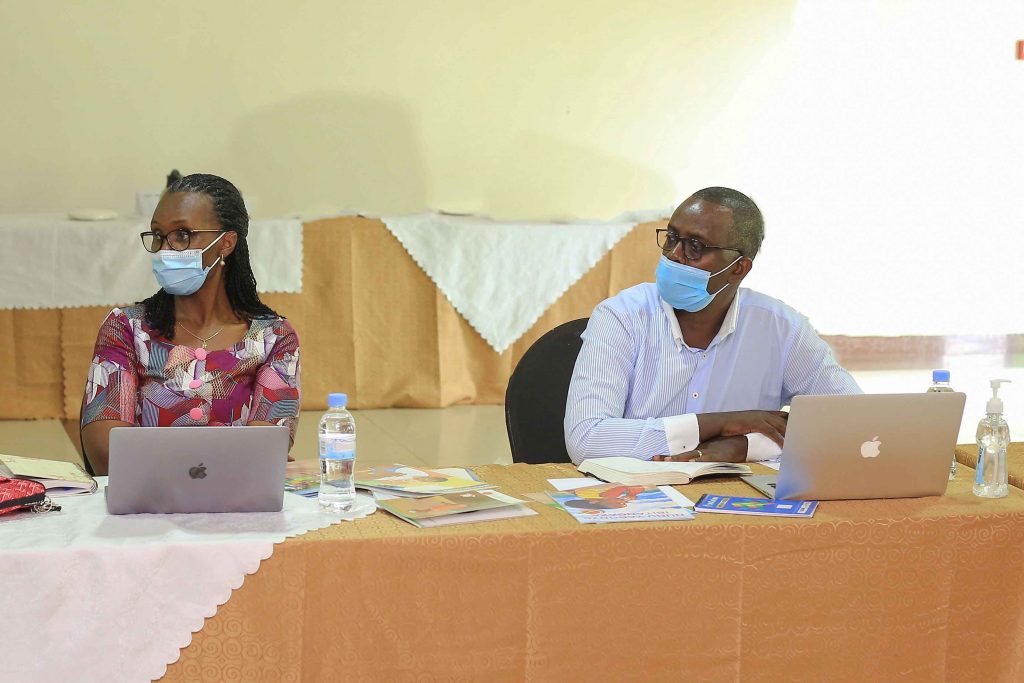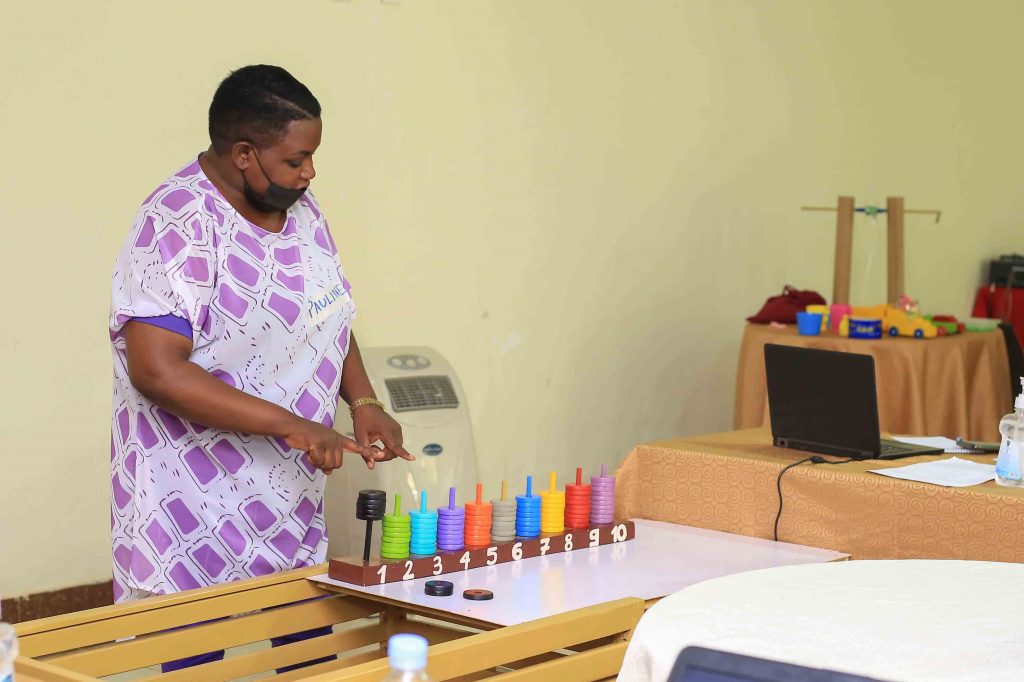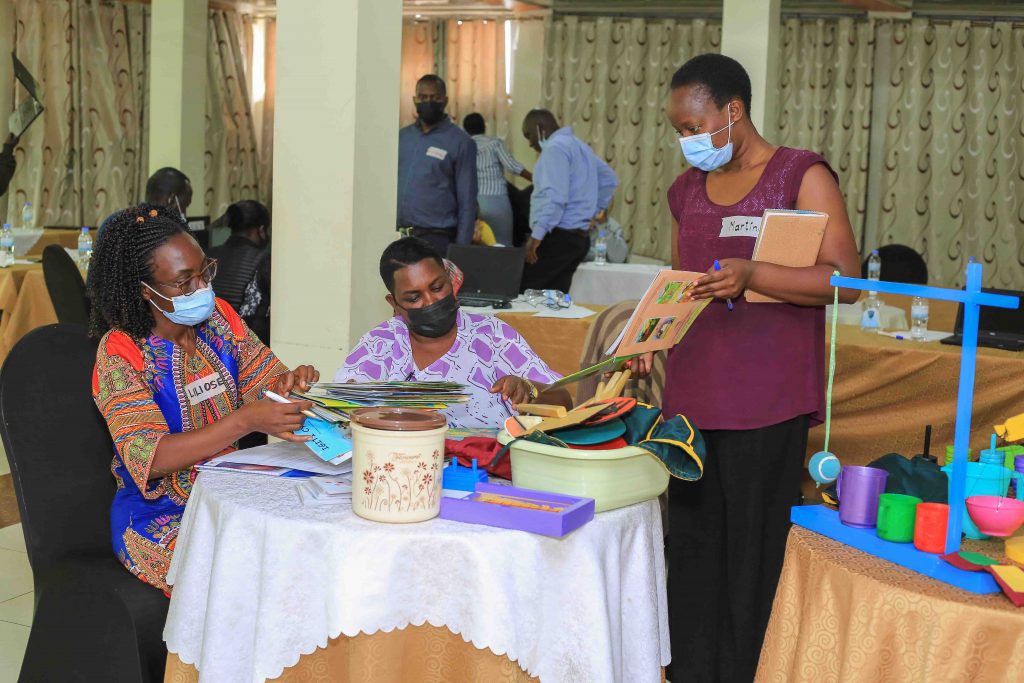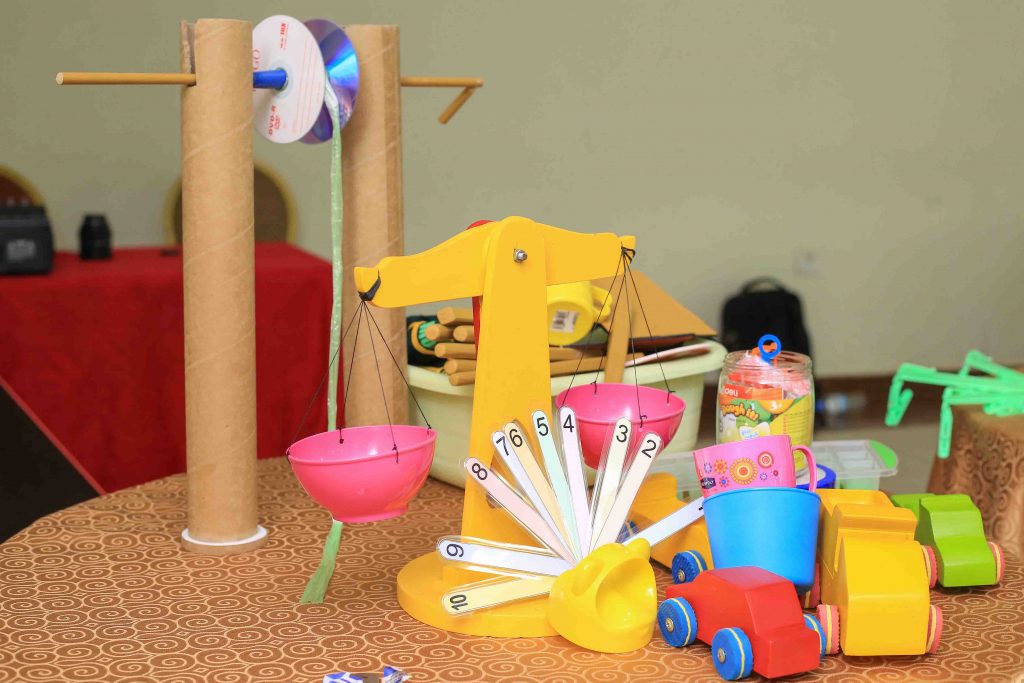Science, Technology, Engineering, and Mathematic (STEM) and ICT are core priorities of the Government of Rwanda through the Ministry of Education, for improved relevance in teaching and learning, right from pre-primary education. UNICEF is supporting this initiative through Inspire, Educate and Empower Rwanda (IEE) and other stakeholders in the development of a STEM guide for pre-primary, as well as field-testing pre-primary STEM learning in 10 pre-primary schools/Early Childhood Education Centers that will be trained on STEM kits to pave way for STEM rollout.
Experts in the Education sector met on December 15 and 16, 2021, to review Science, Technology, Engineering and Mathematics (STEM) guide & kit for pre-primary Education. The purpose of the guide and kit is to provide required pedagogical knowledge and skills to pre-primary teachers, enable them to create and facilitate STEM learning opportunities, for children to develop inquiry method, observation, critical thinking, problem solving and creativity from early years of Education. The Teacher’s Guide on the integration of STEM in teaching & learning in pre-primary Education is being implemented by Inspire, Educate and Empower Rwanda (IEE) in collaboration with the Rwanda Basic Education Board (REB) and other stakeholders, under the support of UNICEF-Rwanda. A national consultant will be brought on board to train and provide support to teachers from 10 selected Early Childhood Education (ECE) Schools.

The Director General of Education Policy and Analysis at the Ministry of Education, Rose Baguma who participated in the review of the (STEM) guide and kit said it is a value addition, where the guide and kit will make the teacher’s work easier in as far as STEM at the early stage is concerned.

“Children will be able to learn in a creative, fun and interesting way, hence instilling in them the desire to pursue STEM in future, what is required is that teachers use the kits effectively, keep them safe and let kids explore”, Said Rose Baguma

Baguma also recommended that the kits should even be owned by parents in their homes, since they contain items that help in teaching young children, fostering creativity and playful learning at the same time.
The role of parents in STEM education is important, because most parents believe that STEM learning is for older children and can only be taught successfully in formal settings like schools.
About the STEM Guide
It covers the three grades of pre-primary Education where some of learning activities will be carried out by children of one grade level, while others can be performed by all children from Grade 1 to Grade 3, but with differentiated learning objectives and guidance.
The STEM guide has also structured information that defines STEM, why it is important during early years of Education, teaching and learning skills in young children. The second and main part of the guide includes guidance on different STEM activities linked to the Rwanda Basic Education Board (REB) pre-primary curriculum and other age-appropriate topics from international best practices. Liliose Mukantagwera, an ECD Program Coordinator at Save the Children International-Rwanda said that early childhood is a right period for STEM learning since it brings children closer to self-discovery, using materials around them to widen their knowledge. She added that through this process, kids also enjoy whatever discovery they make, as explore new experiences, to make sense of themselves and the environment in which they live.

The STEM guide also highlights the role of STEM related stories. In his presentation, Firmin Dusengumuremyi, an Education Officer with UNICEF Rwanda said that reading STEM related stories to young children helps them to acquire new vocabularies, develop language structure and comprehension skills. He further indicated that discussion on STEM from read stories may prompt children to plan, wish to discover, test theoretical ideas, and get encouraged to discuss their findings with one another.
In early childhood, scientific inquiry provides opportunities for children to develop their abilities, explore materials and notice what happens. The process which is playful and experimental, allows children to gain knowledge and skills by working for an extended period, and promotes self-directed learning which nurtures lifetime skills and attitudes.
Reactions to this content may be addressed to: ieerwanda.directorate.org@gmail.com
